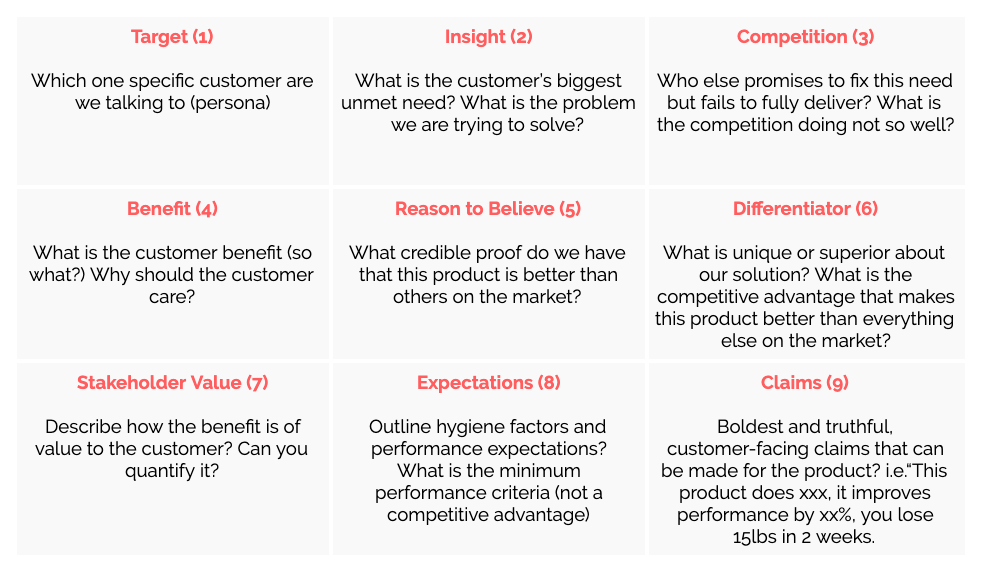Home > Insights > Sales & Marketing > What is a Value Proposition
What is a Value Proposition?
By: Kiran Chin
June, 2020

The value proposition (“value prop”) is a fundamental tenet used in marketing organizations to help define the who, what, why and “so what” that many organizations need to think through prior to marketing a product or service. The value prop framework can be broken down into the following eight questions that need to be asked and answered with confidence.
- Target: Who is the customer you are going to sell this to? (ie. pharma, cell/gene therapy, aerospace)
- Persona: What is the one persona or customer type at your target (ie. head of operations, sourcing)
- Insights / Unmet Need: What is each persona’s unmet need? (ie. too labor intensive, can’t turn around fast enough to meet customer demands)
- Competitive Solution: What is the competition doing to solve that unmet need?
- Benefit: What are you doing to solve that unmet need?
- Reason to Believe: Perhaps one of the most important elements of a value prop, it is the need to provide credible proof that what you offer is in fact better than the competition at solving or beating their needs.
- Differentiator / Competitive Advantage: What is unique about your solution that provides a material difference to what the competition is offering?
- Stakeholder Value: Describe how the benefit provides a value to the customer – are you able to quantify it?
- Baseline Expectations: Outline the basic performance and/or quality parameters that your offering has to meet. This baselining is important to validate that what you consider to be of value, actually provides the value you assigned to it.
- Claims: The heart of a value prop exercise are the claims that you can (with confidence and truthfully) assert regarding your offering.
It is important to emphasize that a value prop is not a series of checkboxes and filling in the blanks. It is a discussion that requires a team approach to validating the assertions of one or a few. The reason why the value prop is important is that it seeks to mitigate the inherent cynicism that may arise from sales professionals and customers when these questions are not asked and answered.



